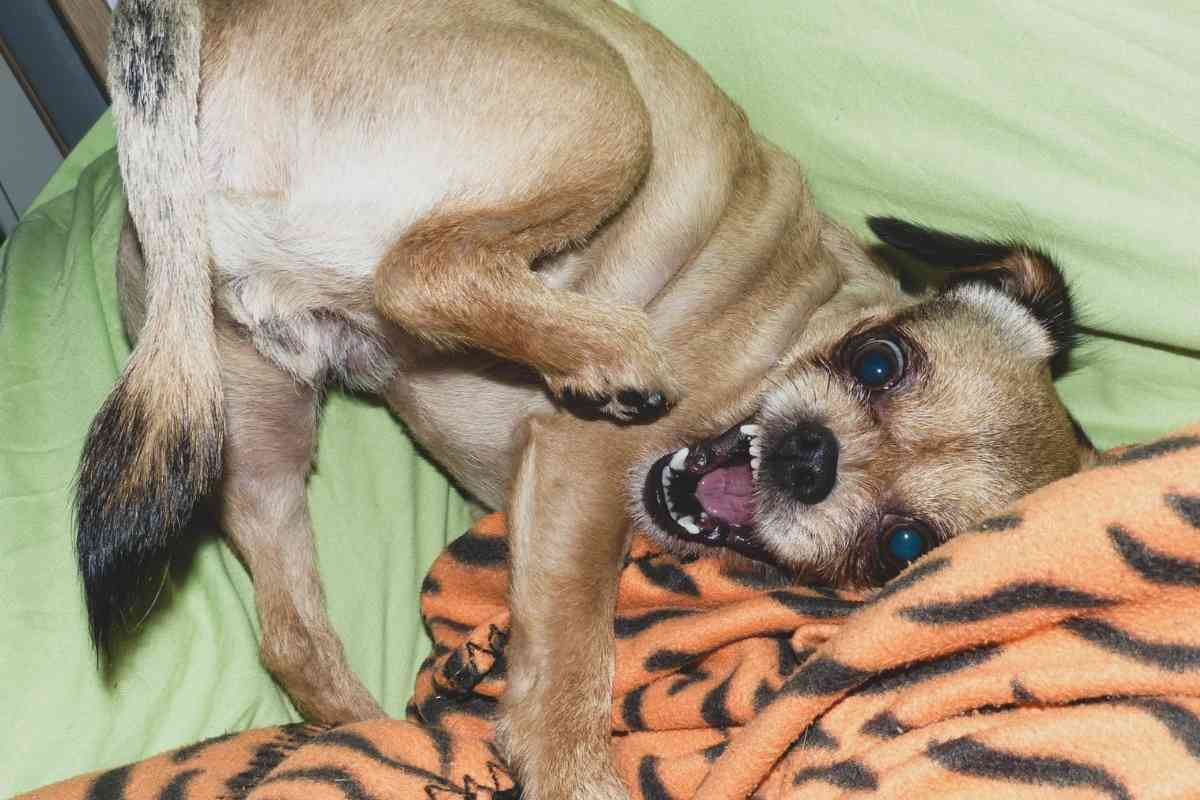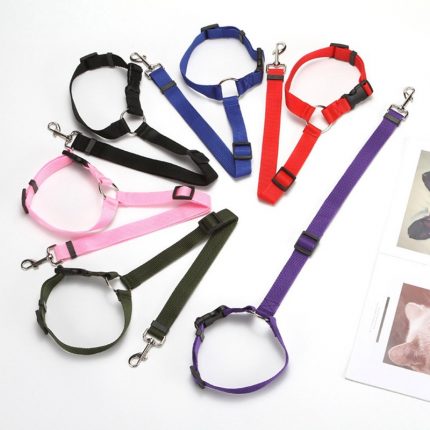Having a new puppy can be an exciting and joyful experience. However, it can also come with its fair share of challenges, particularly when it comes to their behavior. One common issue that many puppy owners face is their furry friend going crazy at night. If you find yourself wondering Why Does My Puppy Go Crazy at Night?
There are several reasons why puppies tend to become hyperactive and full of energy during the nighttime hours. Firstly, it’s important to remember that puppies are naturally more active and playful compared to adult dogs. They have an abundance of energy that needs to be released, and sometimes, it can manifest itself in hyperactivity.
 Reasons Behind Why Does My Puppy Go Crazy at Night
Reasons Behind Why Does My Puppy Go Crazy at Night
Here are some of the reasons of Why Does My Puppy Go Crazy at Night:
1. Natural Puppy Energy
Puppies are known for their boundless energy and playful nature. During the day, they engage in various activities, exploring their surroundings, playing with toys, and interacting with their human companions. However, when nighttime falls, their energy levels can skyrocket. This is partly because puppies have shorter sleep cycles compared to adult dogs, and they may experience bursts of energy during their waking hours. It’s important to recognize that this behavior is normal for puppies and is a result of their youthful exuberance.
2. Circadian Rhythm and Sleep Cycles
Just like humans, puppies have a circadian rhythm that regulates their sleep-wake cycle. However, their sleep patterns may differ from ours. Puppies tend to have shorter sleep cycles, which means they may wake up more frequently during the night. These wakeful periods can lead to increased activity and restlessness. It’s essential to understand that this is a natural part of their development and will improve as they grow older.
3. Boredom and Lack of Stimulation
Puppies require mental and physical stimulation to stay happy and content. If they don’t receive enough exercise, playtime, and mental enrichment during the day, they may become bored and restless at night. This can manifest as hyperactivity, excessive chewing, or engaging in attention-seeking behaviors. Providing your puppy with ample opportunities for play, exercise, and mental stimulation throughout the day can help reduce their nighttime craziness.
4. Separation Anxiety
Separation anxiety is a common issue among puppies. When left alone in a dark and unfamiliar environment, they may feel anxious and lonely. This can trigger hyperactive behavior as they seek attention or comfort. Separation anxiety can also lead to excessive barking, whining, or destructive behavior. Gradually acclimating your puppy to being alone, creating a soothing environment, and using positive reinforcement techniques can help alleviate their anxiety and reduce nighttime hyperactivity.
Practical Recommendations for Managing Why Does My Puppy Go Crazy at Night
1. Establish a Consistent Routine
Puppies thrive on routine and structure. Establishing a consistent daily routine that includes regular feeding times, exercise sessions, and designated playtimes can help regulate their energy levels. By providing a predictable schedule, you can help your puppy understand when it’s time to be active and when it’s time to rest.
2. Create a Calming Environment
Creating a calm and soothing environment in your puppy’s sleeping area can promote relaxation and reduce nighttime hyperactivity. Ensure that the space is comfortable, quiet, and free from distractions. Consider using a cozy crate or a designated bed where your puppy can feel secure and safe.
3. Provide Ample Exercise and Mental Stimulation
A tired puppy is a happy puppy. Make sure your furry friend receives plenty of physical exercise and mental stimulation during the day. Engage in play sessions, take them for walks, and provide interactive toys that challenge their minds. Tire them out before bedtime to help promote a more peaceful night’s sleep.
4. Gradual Bedtime Routine
Establishing a consistent bedtime routine can signal to your puppy that it’s time to wind down and prepare for sleep. Create a calming routine that includes activities such as a gentle walk, quiet playtime, and cuddling. Avoid stimulating activities or intense play right before bedtime, as this can increase their energy levels instead of calming them down.
5. Positive Reinforcement and Training
Using positive reinforcement techniques can help shape your puppy’s behavior and encourage calmness during the night. Reward your puppy for calm and relaxed behavior, and redirect their attention away from hyperactive behaviors. Consistency and patience are key when it comes to training your puppy to settle down at night.
Practical Recommendations to Manage Your Puppy’s Nighttime Hyperactivity
1. Increase Physical Exercise
Regular physical exercise is essential for burning off your puppy’s excess energy. Engage in activities such as brisk walks, interactive play sessions, or even enrolling them in puppy training classes. Aim for at least 30 minutes to an hour of exercise each day, depending on your puppy’s breed and age.
2. Mental Stimulation
Incorporate mental stimulation into your puppy’s daily routine. Use puzzle toys, treat-dispensing toys, or interactive games that challenge their minds. This helps tire them out mentally, reducing their restlessness at night. Consider teaching them new tricks or commands to keep their brains engaged.
3. Establish a Bedtime Routine
Create a consistent bedtime routine to signal to your puppy that it’s time to wind down. This can include activities like a gentle walk, brushing their teeth, or a calming massage. Avoid stimulating activities close to bedtime and ensure they have ample time to relax before sleep.
4. Provide a Calm Sleeping Environment
Make sure your puppy’s sleeping area is comfortable and conducive to relaxation. Use a cozy crate or a designated bed with soft bedding. Keep the area quiet and free from distractions, such as loud noises or bright lights. Consider using a white noise machine or calming music to create a soothing atmosphere.
5. Avoid Late-Night Feeding
Try to avoid feeding your puppy right before bedtime. Late-night meals can lead to increased energy levels and digestive discomfort, making it harder for them to settle down. Aim to feed them a couple of hours before their bedtime to allow for digestion and prevent nighttime restlessness.
6. Address Separation Anxiety
If your puppy experiences separation anxiety, gradually acclimate them to being alone. Start with short periods of separation and gradually increase the duration. Provide them with comforting items, such as a blanket or a toy with your scent. Consider using calming aids, like pheromone diffusers or anxiety wraps, to help alleviate their anxiety.
7. Consistency and Positive Reinforcement
Consistency is key when it comes to managing your puppy’s behavior. Use positive reinforcement techniques, such as treats, praise, and rewards, to reinforce calm and relaxed behavior. Avoid punishment or scolding, as this can increase anxiety and hyperactivity. Be patient and consistent with your training efforts.
8. Seek Professional Help if Needed
If your puppy’s nighttime hyperactivity persists despite your best efforts, consider seeking guidance from a professional dog trainer or behaviorist. They can provide personalized advice and strategies to address any underlying issues contributing to your puppy’s behavior.
 Remember, each puppy is unique, and it may take time to find the right combination of strategies that work for your furry friend. Be patient, stay consistent, and provide them with the love and care they need to thrive. With time and effort, you can help your puppy develop healthy sleep habits and enjoy peaceful nights together.
Remember, each puppy is unique, and it may take time to find the right combination of strategies that work for your furry friend. Be patient, stay consistent, and provide them with the love and care they need to thrive. With time and effort, you can help your puppy develop healthy sleep habits and enjoy peaceful nights together.
Our featured products:
Why Does My Puppy Go Crazy at Night – Conclusion
Understanding Why Does My Puppy Go Crazy at Night is crucial for finding effective solutions. Factors such as natural puppy energy, circadian rhythm, boredom, and separation anxiety can contribute to their nighttime hyperactivity. By establishing a consistent routine, creating a calming environment, providing ample exercise and mental stimulation, and using positive reinforcement techniques, you can help your puppy relax and settle down during the night. Remember, with time, patience, and a little training, you and your furry friend can enjoy peaceful nights together.















 Reasons Behind Why Does My Puppy Go Crazy at Night
Reasons Behind Why Does My Puppy Go Crazy at Night